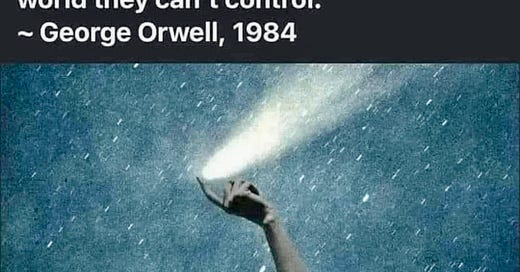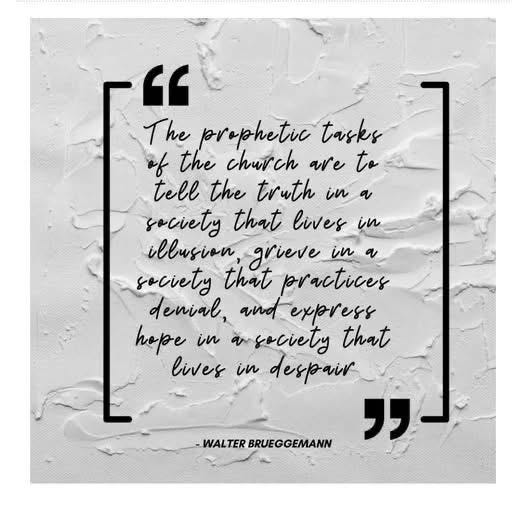Hope without risk
is not hope,
which is believing
in risky loving,
trusting others
in the dark,
the blind leap
letting God take over.
Hélder Câmara, ‘The Desert is Fertile’
As the song says, this is fear country. Henri Nouwen first wrote about it in the 1990s. It is even truer today.
How shall we live in a fearful land?
Last week many immigrants were cruelly incarcerated, some illegally, by ICE in Elizabeth and across the nation. Several faith leaders, like my friend Charlene Walker, rallied to encourage and resist.
I noticed many people I respect are lifting up and modeling, witnessing, to the wisdom of compassion for navigating treacherous waters today. Doubling down on Higher Love, so to speak.
My friend Jim Reisner wrote yesterday:
“‘Do not return evil with evil’ is part of a longer charge and benediction I speak to my congregation at the end of every worship service. It’s harder now than it has ever been, and perhaps more important than it has ever been in our national context. There’s a helluva lot of evil out there. Trump has done incalculable damage to our nation. He has made racism, sexism, xenophobia and other forms of hatred normative.
Our resistance must be firm, but we cannot return evil for evil without losing our souls… It matters how we treat one another. The micro is the only thing that can transform macro injustices, and every loving gesture contributes inestimably to the realization of a better world.”
Because yielding in real life to compassion is hard—and messy— I often want to escape into hubris—denial—or self hate. Yet the call to freedom and new life is unrelenting—and inescapably real—involves truth-forgiveness of daily living. It never lets us go. This means rebuking self rejection, remembering Remembrance, discovering fresh living trust in “that protective nearness which will not permit our final destruction.” (Rilke).
This involves turning in the dread of non-being to Holy Spirit, drinking the cup of trembling, which runneth over. This cup of trembling must be drunk deeply, even to the dregs. And trusting, loosening, letting go—of the grip of fear—and letting God. Doing the next right thing in the force field of Holy Spirit.
I know this is a seismic shift from the fearful ways of the world. But look at how the communion of sinner/saints bear witness, encourage, and challenge us to break into compassionate being, hope against hope.
Walter Bruggemenn wrote in his last published article in March:
“…Karl Barth has offered an account of the reality of the Nihil. On the one hand, Barth sees that the Nihil is an active agent aggressively opposed to the will and purpose of God. On the other hand, he sees that the Nihil is derivative from and a parasite on the reality of God’s rule. Barth gives voice to a strong evangelical affirmation that the Nihil will be defeated and finally nullified and destroyed by the power of God’s love…
Hannah Arendt in a footnote observes the distinguishing mark of Christian faith is not the resurrection but forgiveness. In a world governed by the gospel, there is no quid pro quo of revenge. There is only a willing and ready capacity to break the cycle of retaliation by starting again with forgiveness. Thus we may judge that “forgiveness,” along with generosity and hospitality, mark a life-world in which the negating force of the Nihil has no sway. The church has no monopoly on the life-renewing act of forgiveness, but the church is the only social body that has forgiveness as its core and proper work. Forgiveness is, as we say:
creatio ex nihilo. It is making a new world possible out of the shambles of our chaos. Every time the church meets, we gather with our various shambles of chaos, and receive the news, yet again, that God’s limitless goodness has outflanked the failure and disappointment of our lives.
justification by grace. We cannot of ourselves begin a new life. It is a gift from God who is not a scorekeeper but a victor, a father who welcomes us and a mother who nourishes and embraces us.
The core news of the gospel… is that along with forgiveness of our sin there is the defeat of chaos that we cannot manage on our own. There is nullification of our submissive fear before the Nihil. Nowhere is this made clearer than in the narrative of Mark 4:35-41. The disciples are with Jesus out on the water:
A great windstorm arose, and the waves beat into the boat, so that the boat was already being swamped (v. 37).
The disciples are deeply frightened. They wonder if Jesus does not care about their safety or wellbeing. But he remains unperturbed. He is sleeping soundly in quiet confidence. When awakened, he utters his word:
Peace, be still! (v. 38).
Or perhaps, “shut up” or “get back.” He quiets the chaotic waters… He rebukes his disciples for their fear that manifests their lack of trust in him. The disciples do not answer his query about fear and faith. Rather, they respond in awe and bewilderment. They now know that Jesus could calm chaos. They witness that he can silence chaos. They are not yet ready, in this episode, to recognize that there in the boat with them is the creator God who has limited the force of chaos since the beginning of creation. (See Psalm 104:9, Jeremiah 5:22.)
The church meets regularly to confess and affirm that we know the name and character of the one who effectively manages chaos and who creates viable life-space for our creaturely enterprise. It is no wonder that we used to sing, in trusting innocence:
Jesus, Saviour, pilot me,
Over life’s tempestuous sea;
Unknown waves before me roll,
Hiding rock and treach’rous shoal;
Chart and compass come from Thee—
Jesus, Savior, pilot me!
As a mother stills her child,
Thou canst hush the ocean wild;
Boist’rous waves obey Thy will
When Thou sayest to them, “Be still!”
Wondrous Sov’reign of the sea,
Jesus, Savior, pilot me!
When at last I near the shore,
And the fearful breakers roar
‘Twist me and the peaceful rest—
Then while leaning on Thy breast,
May I hear Thee say to me,
“Fear not—I will pilot thee!”
(Edward Hopper, 1871).
And from Dietrich Bonhoeffer, who wrote from prison:
“It is clear to us that religion is not the fulfillment of what the world lacks or the provider of good fortune on earth. No, with religion, misfortune, unrest, and deprivation have become powerful in the world.
‘My grace is sufficient for you.’ What is grace? It is something not seen, something we don’t get to feel directly. On the contrary, it is something entirely improbable and incredible, according to which we judge what we experience here. Grace speaks of an event beyond all worlds and wants to draw us away from our world to enter another. A dark abyss opens up, and a voice commands: Jump across. I will catch you and hold you fast. I am stretching out my hand. Now bet your life on it, and rely on me and on nothing else. My grace is sufficient for you. I am love.
“I have called you by name, you are mine.” (Isa. 43:1)
Letters and Papers from Prison.







“the blind leap
letting God take over”
Beautiful Michael!